One of the most popular and at the same time expensive base oils in cosmetology is jojoba oil. Strictly speaking, it is not exactly an oil, but rather a liquid wax that is obtained from the nuts of plants growing in the deserts of North America. The reputation of this oil is confirmed by more than a thousand years of history. It is completely unique in its chemical composition and beneficial properties, which are not lost even during long-term storage. Today we propose to talk about why and how to use jojoba oil, we will talk about its composition, dosages, and provide several beauty recipes using this component.
Main characteristics
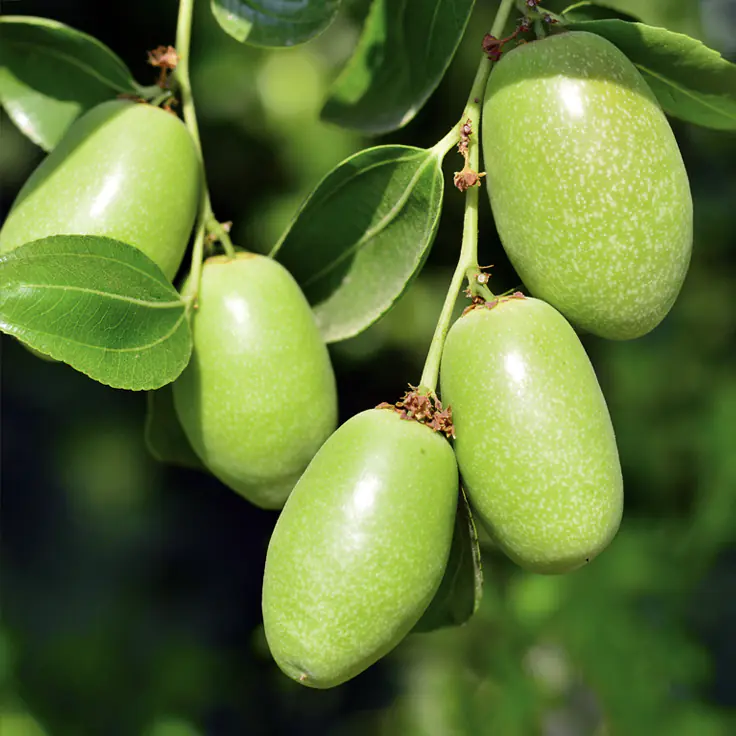
In general, jojoba oil is extracted by cold pressing the nuts. During production, it retains absolutely all fatty acids, and due to the fact that it contains a huge amount of protein and vitamin E, jojoba moves from the category of ordinary base oils into a collection of the most effective antioxidants, agents that can quickly eliminate any inflammation.
One of the main characteristics of this oil is considered to be its high resistance to oxidation. This means that the aroma oil does not deteriorate and does not lose its unique properties over time, while being an ideal basis for dissolving any essential oils. Experts note: you can use jojoba oil in its pure form, but it is best to use it as a 10% solution, mixing it with other vegetable oils.
Jojoba is characterized by a light, almost imperceptible odor and a rich golden color. The oil changes its physical characteristics: at cold temperatures it hardens to a waxy paste, and in warm temperatures it becomes relatively liquid. Cosmetologists note: jojoba is the only base oil that does not leave behind a greasy shine on either the skin or hair. At the same time, it is able to form a dense protective layer.
Jojoba oil: composition
You can purchase this product at any pharmacies and cosmetic stores. In addition, you can also find granules of jojoba wax on the shelves, which were prepared by hydrogenation. You can add such granules to homemade cosmetics. The study of the composition and properties of jojoba began in the seventies of the last century. Researchers were able to find out that this oil is quite close in its biochemical composition to spermaceti. This is the name of a unique substance that was previously extracted from the frontal part of the head of sperm whales.
The main components of jojoba oil include fatty acids and their esters, amino acids, collagen, vitamin E, and carotenoids. Let us note that this composition is truly unique: it does not replicate any of the known vegetable oils. In addition to the fact that this composition has beneficial properties for the skin, it provides the oil with high stability: jojoba is not afraid of exposure to sunlight, oxidation and heat. Moreover, the oil can be stored for a long time even without the use of any additives. For this reason, it is often used as a preservative in the manufacture of cosmetics.
Use in cosmetology
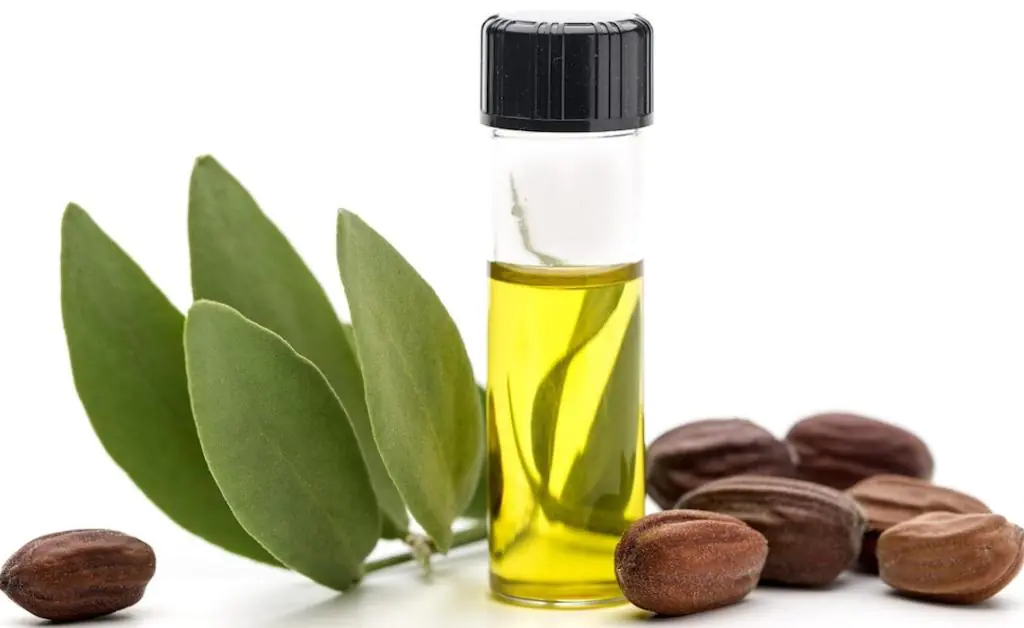
The use of jojoba oil, according to cosmetologists, is almost limitless: it is an ideal component for basic and specialized skin care not only for the face, but also for the décolleté and neck. The product moisturizes and nourishes the skin, restores damage, relieves irritation, redness and inflammation. Jojoba is even suitable for caring for delicate skin around the eyes that requires special attention; it can be used in the manufacture of various vitamin applications and patches. Jojoba oil is also an excellent base for masks. The product has proven effective in treating chapped skin, including on the lips; it quickly eliminates rashes and cracking.
Cosmetologists note: the oil has anti-inflammatory properties, can stimulate the regeneration of skin cells, quickly heals cracks, injuries, cuts, dermatitis and irritation. Moreover, it can also be used in the fight against cellulite and to eliminate stretch marks. One more advantage of jojoba oil for the body, hands, and face should be noted: it is suitable for absolutely any skin type, and can be used by those with oily, normal, dry, problem skin - regardless of age.
Other positive properties of oil in cosmetology include protective, rejuvenating and cleansing. In addition, it can be used even by women who often experience allergic reactions to any skin care cosmetics.
Dosage Features
Using jojoba oil is not difficult: in order to enrich the cream or lotion, you need to add 15% of this oil to the finished composition. Jojoba oil for the face - in its pure form, mixed with other base oils - can be used for daily skin care after cleansing. If you want to prepare a nutritious mixture, combine jojoba, olive, apricot kernel and avocado oils in equal parts; for every two tablespoons of this mixture you will need one drop of lemon or orange essential oil.
If your skin is prone to flaking, you can use a tablespoon of jojoba oil with two drops of lavender. For aging skin, instead of lavender, patchouli oil is suitable, and tea tree oil can cope with the problems of skin prone to rashes. In order to obtain a suitable composition for the delicate skin around the eyes, you can add a drop of fennel or mint oil to jojoba oil. To care for lips with jojoba, it is better to combine lemon balm.
Using jojoba oil, you can prepare a unique smoothing mixture that can eliminate stretch marks: you need to combine jojoba, avocado, lavender, orange, mint and rosemary.

To care for your hair, you can add about 5 drops of jojoba oil to your shampoo or conditioner. At the same time, if it is important to solve the problem of hair loss, it is recommended to add sage and eucalyptus oil. A combination of jojoba, ylang-ylang and orange will help with dry hair; this composition must be applied to a wooden comb, which you use to comb your hair after washing. What else is jojoba oil good for? Experts talk about the effectiveness of massages, applications and compresses for various skin lesions.
Oil harm
Speaking about the use of this amazing oil, it should be noted that individual intolerance to it is a rather rare phenomenon. However, before the first use, it is recommended to carry out a test: one drop of oil should be rubbed into the wrist. After half an hour, you should evaluate the condition of the skin: if redness appears, it is better to stop using the oil. If you decide to use jojoba oil daily all over your facial skin (especially if it is oily), you may trigger active sebaceous gland activity. The result is numerous inflammations.
How to choose quality oil
High-quality oil is usually sold in small bottles made of dark glass. The list of main producing countries includes the United States of America, Australia, Mexico, Egypt, Brazil, Argentina, Peru and Israel. It should be noted that in cold climatic conditions this plant is simply not able to survive, and therefore it is enough to look at the specified country to recognize a fake. It is best to store this oil in the refrigerator; before use, you need to heat only the amount that is needed to prepare the cosmetic product. This can be done either at room temperature or using a water bath. By the way, unlike other vegetable oils, this can be stored for several years - due to the fact that it contains a large amount of ceramides, which do not allow it to oxidize.
Application for face

This unique oil is widely used in the field of facial skin care. Its delicate texture allows it to be quickly absorbed, without leaving any greasy shine or unpleasant sticky film. The product does not clog pores, allows the skin to breathe freely and maintains its natural moisture level. You can use oil-wax for all areas of the face.
The product increases elasticity and firmness, makes the skin smooth and soft. Jojoba oil is widely used for the face against wrinkles, post-acne, dull skin color, swelling and acne. Some women use jojoba as a sunscreen if their skin is sensitive to ultraviolet light. You can apply it before tanning: powerful natural filters will not allow the skin to burn or redden, and the fabrics will not lose moisture in the sun. It is also recommended to use jojoba oil in the cold season: it will protect against hypothermia, chapping, and prevent flaking of the skin.
For body
Cosmetologists recommend using jojoba oil for the entire body: this will maintain a normal level of moisture and elasticity of the skin, make it tightened, and eliminate stretch marks. Regular application of the product to the neck, décolleté, and arms will help you look young and attractive longer. It should be noted that jojoba oil does an excellent job of removing rough tissue on the knees, palms, feet and elbows. It can also be used for cellulite changes in the skin, both for existing problems and as a preventive measure.
For curls
When talking about what jojoba oil can be used for, we cannot fail to mention hair. Wax from seeds nourishes and moisturizes curls from roots to ends, restores structure, solving the problem of dandruff, normalizing the functioning of the sebaceous glands. Indications for wax use include the following:
- dry hair;
- lack of volume;
- dandruff;
- slow hair growth or loss;
- increased greasiness;
- damage due to chemical perms, bleaching, frequent use of straightening irons, hair dryers and curling irons.
For eyelashes
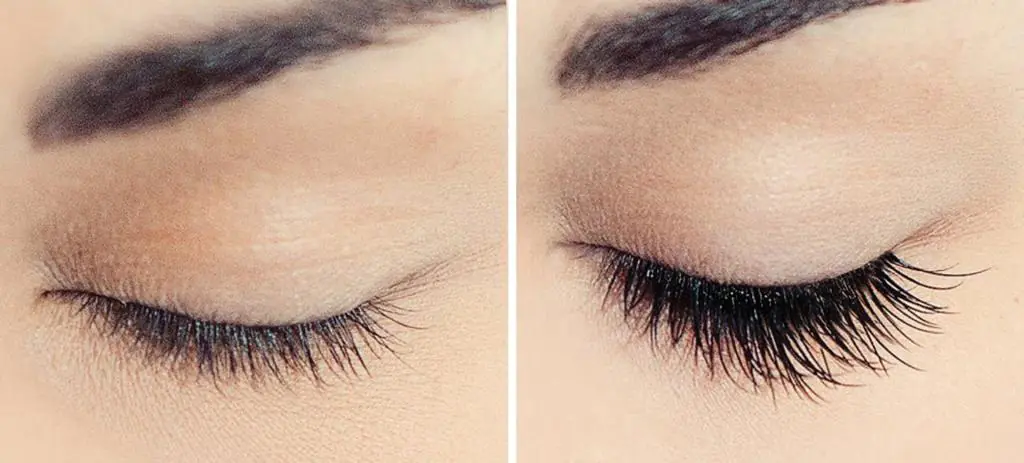
Do your eyelashes fall out, break or grow poorly? Jojoba oil, used in its pure form, works real miracles. It should be applied along the edges of the eyelids, thereby nourishing the follicles and strengthening the eyelashes. In addition, this allows you to awaken the bulbs, which are currently in the sleep phase. This significantly increases the volume of eyelashes, they become darker, longer, and the look becomes more expressive. You can use jojoba oil to remove eye makeup.
Home Recipes
There are a huge number of ways to use jojoba oil when preparing homemade cosmetics. It can be used in its pure form, in combination with other oils or products.
Use undiluted
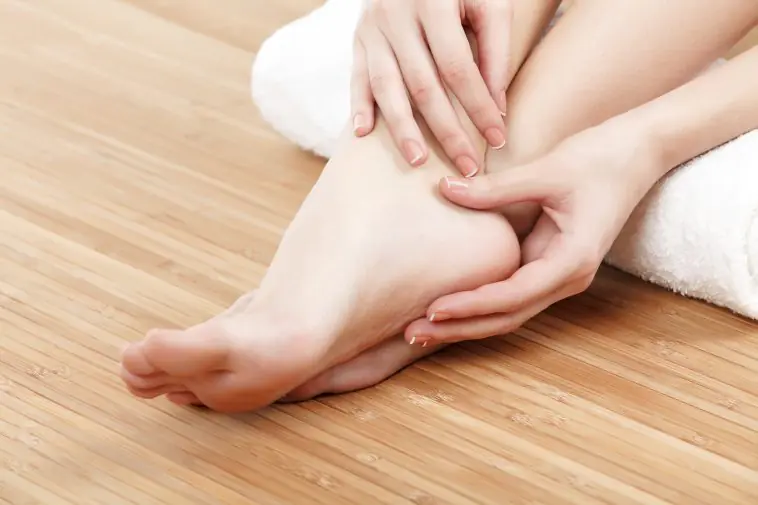
Why is jojoba oil used in its pure form? Cosmetologists say: this product should be applied to those areas where the skin is especially dry, dense or rough, for example, on the elbows, knees, lips or heels. It is recommended to repeat the procedure only a couple of times a week. You should be especially careful when using pure oil on your face: this can eliminate deep wrinkles, but too frequent use of wax can clog the cells. The best way to use pure oil is as a mask or application. It is enough to apply the product to the skin with a brush or soak a cloth with it. After fifteen minutes, it is recommended to rinse off the product with warm water.
For wrinkles
Thinking about using jojoba oil on your face for wrinkles? You will need the following ingredients:
- one chicken yolk;
- a teaspoon of fat sour cream or cream;
- a tablespoon of jojoba oil;
- a teaspoon of liquid honey.
Preparation of the product is quite simple: you need to heat the honey and oil in a water bath, add the remaining ingredients, apply the product to the skin and leave for 20 minutes. After the specified time, it is recommended to wash off the mask with warm water.
For acne and oily skin
Worried about acne, oily and greasy skin? Try making a composition with the following ingredients:
- one tablespoon each of jojoba oil and white or blue clay;
- some warm water;
- half a tablespoon of calendula tincture;
- a couple drops of lavender essential oil.
Preparing the product is quite simple: you need to dilute the clay in warm water and add the remaining ingredients to it, mix well. The resulting mask should be applied to the skin. After the mixture dries, it should be washed off with warm water. After this, it is recommended to apply any moisturizer to the skin.
For hair
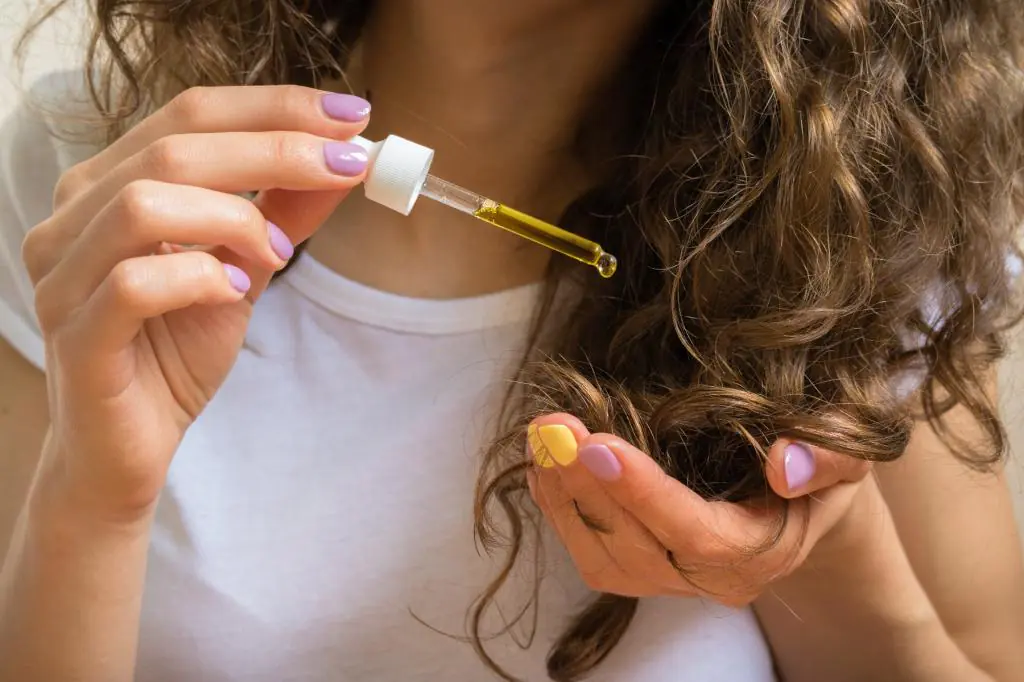
What is jojoba oil used for hair? It allows you to solve problems such as damage and dryness, brittle hair, and slow growth. To prepare the mask you will need:
- a tablespoon of melted honey;
- 1 egg yolk;
- two tablespoons of jojoba wax;
- a couple of drops of sandalwood or neroli essential oil.
The main component of the product – jojoba – needs to be heated and the rest of the mask components added to it. The composition must be applied to the root part, and only then distributed over the entire length of the hair. It is recommended to warm the mask, keep it on your hair for 30-40 minutes, then rinse thoroughly with shampoo.
Jojoba oil is also suitable for oily hair. To do this, 1 tablespoon of the product must be mixed with two tablespoons of lemon juice and the pulp of one avocado. The composition must be applied to damp hair, rubbed in, and rinsed off after an hour.
For dry and sensitive skin
When talking about using jojoba oil for the eyes or for sensitive facial skin, cosmetologists recommend preparing a nourishing and moisturizing product from the following components:
- a tablespoon of jojoba oil and full-fat cottage cheese;
- a teaspoon of freshly squeezed carrot juice.
Preparation will only take a few minutes: the oil must be heated in a water bath, mix the juice and cottage cheese in a separate bowl, add warm oil and apply to the face for 15 minutes. After this, the remnants of the mask should be removed with a soft cloth and washed with warm water.
For hands
The skin of the hands is daily exposed to the adverse effects of temperature changes, ultraviolet radiation, comes into contact with hard water, household chemicals, and therefore needs daily protection, moisturizing and nutrition. Jojoba oil will help cope with this task. You can prepare various care products for your hands. We offer a composition that is suitable for daily use. The list of components is simple:
- ¼ part of a glass of jojoba oil, the same amount of emulsion wax;
- 50 ml water;
- 10-15 drops each of patchouli and incense oils.
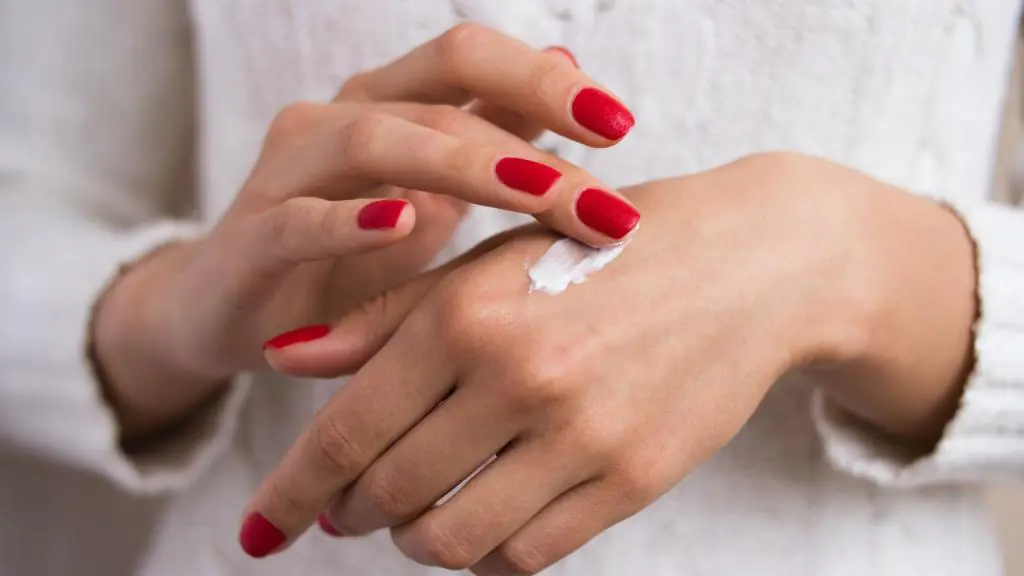
In order to prepare such a homemade cream, it is recommended to combine wax and oil, heat them in a water bath and mix, then add essential oil, heat the water in a separate container to 40-50 degrees, and add to the composition. After this, all components must be thoroughly mixed again, poured into a glass jar and left in the refrigerator. The product can only be applied to clean hands.
Jojoba oil is a unique cosmetic and medicinal product that is effectively used in the field of cosmetology. It is extracted by cold pressing from the seeds of the American shrub Simmondsie chinensis (aka Buxus chinensis), which grows in Mexico and Arizona. The chemical composition of this oil is distinguished by its uniqueness.
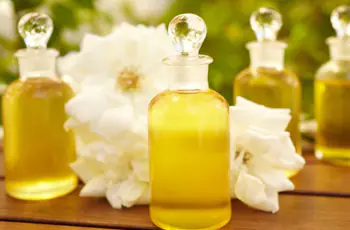
Composition and properties of jojoba oil.
This natural and unique product contains monounsaturated fatty acids, proteins, vitamins, in particular vitamin E, thanks to which the oil has pronounced anti-inflammatory, antioxidant and regenerating properties. This product has a very long shelf life, and when added to other vegetable oils, it increases the shelf life of the latter.
This oil is odorless, its consistency is thick (its structure is wax), but at the same time this does not prevent it from quickly and easily penetrating into the skin and hair to a very deep level and does not leave behind a greasy sheen. After its use (be it skin or hair), a thin protective film (barrier) is formed, protecting against negative external influences, but at the same time allowing the skin to “breathe”.
Application of jojoba oil.
For skin.
Jojoba oil has a softening and moisturizing effect, is resistant to oxidation and temperature changes, which is why it is often used in the production of modern cosmetics. In addition, it effectively relieves swelling, redness and inflammation of the skin and joints, serves as an excellent means of preventing and eliminating stretch marks and cellulite during pregnancy, and improves the condition of the skin in the presence of acne, acne, dermatitis, neurodermatitis, eczema, psoriasis. Its light texture with pronounced bactericidal, antiseptic and antifungal properties is ideal for caring for problematic skin that is prone to acne and comedones.
This product is an excellent skin care product, which is why the cosmetic industry most often uses it as an ingredient in its products. Thanks to deep penetration, it perfectly nourishes, softens and moisturizes the skin. Since it has a high level of protection, you simply cannot find a more suitable oil for caring for the delicate skin of newborns. It is great for helping with diaper rash and rashes (from using diapers as well).
This product is suitable for use on absolutely any skin (it is hypoallergenic), it has a particularly beneficial effect on dry skin types with inflammation and peeling. In addition, it will restore vitality and a young, fresh appearance to tired, aging and sagging skin, smoothing out wrinkles (including around the eyes) and eliminating minor damage (cracks).
Jojoba oil, due to its properties, also has a positive effect on the skin condition of chapped, dry and cracked lips, ideal for skin care after shaving, after sunbathing, and for softening denser skin areas (elbows, heels, palms).
For hair.
Jojoba oil is an excellent method for treating and restoring damaged, dry and color-treated hair. A course of masks with its addition will make hair of any type strong, restore its vitality and shine. In addition, it nourishes and strengthens eyelashes and eyebrows.
Use during pregnancy and lactation.
Since the product is completely natural and has no side effects, it can be used even during pregnancy and lactation. Regular application to areas at risk of stretch marks will help prevent them from appearing after childbirth. And using oil after childbirth will help speed up the process of skin restoration, making it firm and elastic.
For weight loss.
Jojoba oil can also help with weight loss. The seeds of the plant from which this product is obtained contain an active substance called simmondsin, which has been found to help reduce appetite and stimulate the production of the hormone cholecystokinin. This hormone and the active substance, when interacting together, signal the brain about the onset of satiety. Regular use of oil leads to a gradual loss of body weight. Plus, the lipids, amino acids, vitamins and unsaturated fats it contains have a beneficial effect on metabolic processes and the functioning of the digestive system. In order to lose weight, it is recommended to take a tablespoon of jojoba oil daily, or consume ten jojoba seeds with a glass of water before each meal.
Homemade recipes based on jojoba oil.
This product can be used for skin and hair care at home, adding to ready-made or home-made lotions, creams, shampoos, masks and massage mixtures.
For example, for daily skin care after showering, sunbathing, shaving, you can use a mixture of jojoba oil and almond oil (or avocado, peach, apricot, grape seeds), taken in equal proportions, or add to two tablespoons of base a drop of limetta, rosewood, orange or rose oils.
To smooth out wrinkles around the eyes, it is effective to use a mixture of jojoba oil enriched with a few drops of fennel or mint essential oil (take one or two drops of essential oil per tablespoon of base oil (jojoba)), or a drop of rose and Santal, or Santal, Neroli.
If you have deep wrinkles, it is recommended to use jojoba oil in combination with almond oil or avocado, taken in equal proportions, but you can also add essential oils (drop by drop) of lime, fennel or neroli, pine or mint to the mixture. Apply twice daily to cleansed skin.
A mixture of jojoba oil (a tablespoon) and essential oils of orange, chamomile and santhal (one drop each) is effective for dry, inflamed, flaky skin.
To solve various cosmetic skin problems, you can use a mixture of jojoba oil with the addition of lavender and clove oils, or a mixture of this base with cedar oil or cajuput. Apply the mixture twice a day to cleansed skin.
For lip skin care, a mixture of a tablespoon of jojoba oil and adding a couple of drops of rose oil (can be replaced with lemon balm or mint oil) is perfect. It is better to apply this product twice a day with light massaging movements. Dry, cracked and flaky lip skin will very quickly regain its former tenderness and attractiveness.
To prevent and treat cellulite, it is effective to use jojoba oil in its pure form, but adding essential oils will only improve the effect. Jojoba (a tablespoon) can be enriched with a few drops of lavender, lemon, cypress, rosemary oil, as well as patchouli, fennel, juniper and geranium oils.
To prevent the appearance of stretch marks during and after pregnancy, it is recommended to use jojoba in combination with lemon and tangerine essential oils. To prepare the mixture, add a drop of each of the listed oils to two tablespoons of jojoba. Rub the composition into problem areas with massaging movements, preferably after taking a shower.
Jojoba oil is ideal for caring for colored, damaged and dry hair. It in its pure form (slightly warmed) should be rubbed into the scalp and hair half an hour before washing your hair.
For hair loss, use a mixture of jojoba oil as a mask with the addition of a couple of drops of cedar, eucalyptus, pine, ginger or sage oil. After applying the composition to the skin and hair, the head should be wrapped in polyethylene and a towel. After forty minutes, rinse with shampoo.
To care for rough areas of skin (feet, knees, elbows), after taking a warm bath, rub jojoba oil into them in pure form or in combination with other vegetable oils (almond, olive, flaxseed, etc.). Jojoba can also be enriched with essential oils of tea tree and marjoram (one drop of essential oils per tablespoon of jojoba).
To care for problem skin, it is useful to use a mixture of a tablespoon of foundation with the addition of one drop each of tea tree and lavender essential oils, which are excellent antiseptics. Apply the composition daily to problem areas or apply in the form of applications for twenty minutes.
Jojoba oil is a natural and unique product that allows you to maintain the beauty of your hair, as well as the health and youth of your skin.

Jojoba oil
Jojoba oil is a liquid wax that obtained from the fruits (nuts) of the Simmondsia plant (branched evergreen shrub) by cold pressing.
Global production of jojoba oil is about 3,500 tons per year. The main oil producing countries include Mexico, USA, Australia, Brazil, Costa Rica, Israel, Paraguay, Peru, Argentina and Egypt.

Jojoba oil properties
IN composition of jojoba oil includes amino acids, which in their structure closely resemble collagen, that is, the substance that is responsible for the elasticity of the skin.

At room temperature, unrefined jojoba oil has a distinct golden color and a slightly oily odor. Refined jojoba oil has no color and odor. The melting point of jojoba oil is approximately 10 degrees Celsius. Jojoba oil does not contain triglycerides and has an oxidative stability index of approximately 60, which means it can be stored longer than some other oils (but less than castor oil or coconut oil). Jojoba oil is resistant to oxidation (rancidity), which allows it to be used in the cosmetics industry.
Jojoba oil uses
Jojoba oil is used in the pharmaceutical industry, limited in the feed industry (cake contains up to 33% protein and simmondsin - an appetite suppressant), in the production of certain lubricants and in the manufacture of cosmetics.
Jojoba oil, as an additive, is widely used in the cosmetics industry, especially by those manufacturers who make products from natural ingredients. In particular, jojoba oil can be found in lotions and moisturizers, shampoos and conditioners.

The oil, in its pure form, can be used as:
Lip balm
Jojoba oil can be used as a lip balm all the time. Simply apply a few drops to your finger and move the oil onto your lips. Many lip balms contain pore-clogging ingredients, so jojoba oil is a good alternative.
Jojoba oil for hair as a conditioner
Add a few drops of jojoba oil to your current conditioner and use it as directed. A few drops of oil applied to damp hair before drying will give it a natural and healthy shine. Jojoba oil moisturizes the scalp and helps prevent dandruff.
Makeup remover
Jojoba oil is generally non-allergenic and is used to remove makeup, including eye makeup, foundation, blush and lipstick. Apply as follows: mix water and jojoba oil in equal parts in a small container. Shake before use, squeeze a little onto a cotton pad and carefully remove makeup.
To moisturize the skin
A few drops of jojoba oil in the palm of your hand, add moisturizer in the applied volume and you will get an improved feeling of hydration on the skin.
For a comfortable shave
Apply some oil, then shaving cream. After shaving you will get soft skin, the oil will help eliminate possible skin irritation after shaving.
Massage Oil
Jojoba oil does not cause comedones, so it is most advisable to use it as a massage oil.
Benefits of Jojoba Oil
- The oil provides hydration throughout the day.
- Using jojoba oil helps balance sebum production.
- The oil retains its properties during long-term storage.
- Organic jojoba oil is free from pesticides and GMOs.
Disadvantages of Jojoba Oil
- Organic oil doesn't come cheap.
- Using the oil in large quantities (10 drops per day) can promote shine on the skin. Conservative use of oil - up to 6 drops per day.
Before using jojoba oil in its pure form or before using products that contain jojoba oil as an ingredient, consult a medical professional.



